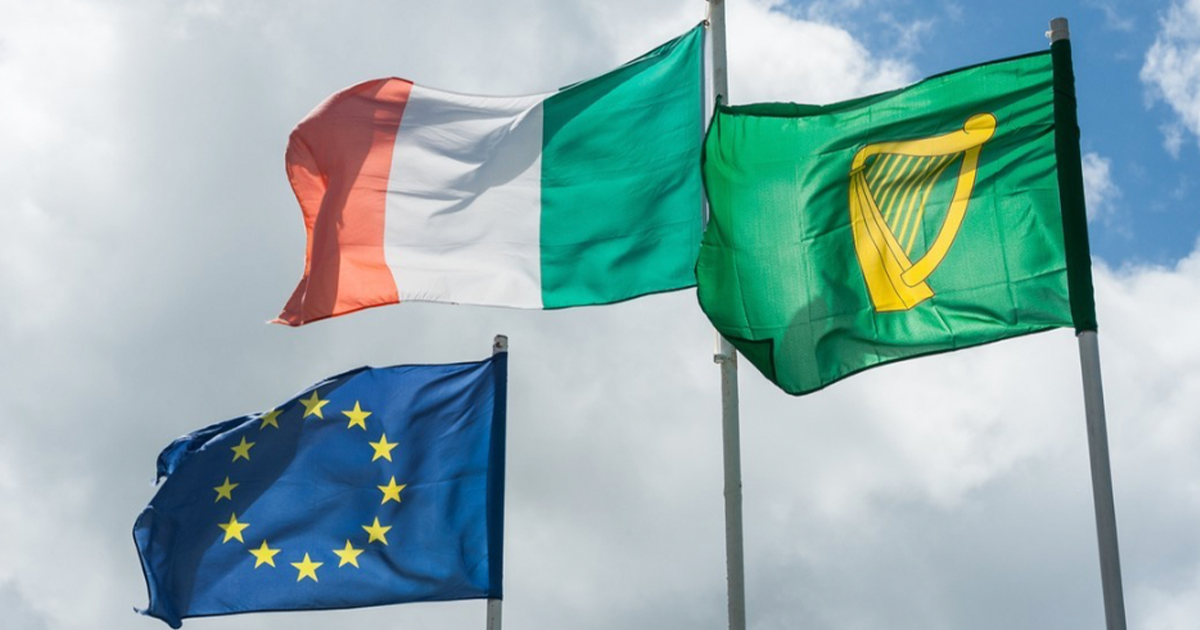What the Election results mean for Ireland's LGBTQ+ community
For the LGBTQ+ community, the election results are a mixed bag. While some progress may be on the horizon, significant gaps remain.

Ireland 3 December, 2024. Written by Sarah Creighton Keogh.
Image: @Oircheatas_news via instagram
The recent general election results in Ireland has set the stage for significant debates about LGBTQ+ rights and inclusion, as the top three parties—Fianna Fáil, Sinn Féin, and Fine Gael—negotiate the formation of the next government. The final count shows Fianna Fáil winning 48 seats, Sinn Féin 39, and Fine Gael 38.
Other parties have won the following numbers of seats: Independents 16, Labour 11, Social Democrats 11, PBP-Solidarity 3, Aontú 2, Independent Ireland 4, Green Party 1 and the 100% Redress Party 1.
On November 6, a coalition of 18 LGBTQ+ organisations launched Ireland’s first sector-wide manifesto, urging candidates to prioritise safety, rights, and well-being for LGBTQ+ people. While the election results reflect a potential shift toward more progressive representation, the platforms of the leading parties reveal varying degrees of alignment with LGBTQ+ priorities.
Fianna Fáil, which emerged as the largest party, has pledged to ban conversion practices, improve inclusive healthcare services, and expand the FUSE anti-bullying programme in schools. However, its platform excludes key measures, such as updating the Equality Acts to fully protect LGBTQ+ individuals, improving sexual health services, and enacting hate speech legislation.
Fine Gael, the third-largest party, has focused on healthcare, with commitments to enhance trans-specific services, eradicate new HIV transmissions by 2030, and increase mental health funding. Yet, it falls short on other critical issues, such as banning conversion therapy, protecting intersex individuals, and expanding community support services.
Sinn Féin, which gained significant ground in this election, has proposed a comprehensive approach to LGBTQ+ health and well-being. Their platform includes holistic gender identity healthcare, an updated sexual health strategy, and a €250 million mental health action plan focusing on young people. However, they have not committed to banning conversion therapy, updating the Equality Acts, or providing LGBTQ+ training for educators.
Sinn Féin’s Housing Spokesperson, Eoin Ó Broin, highlighted the election’s shift toward a larger progressive left-republican bloc, which includes Labour and the Social Democrats. He reiterated Sinn Féin’s preference for a government excluding Fianna Fáil and Fine Gael, though the party remains open to discussions with all sides. “Ultimately a Fianna Fáil/Fine Gael government would be bad for those who voted for change,” he said.
For LGBTQ+ communities, the election results are a mixed bag. While some progress may be on the horizon, significant gaps remain. Policies addressing hate speech, intersex protections, and gender recognition for young trans and non-binary people remain unfulfilled.
© 2024 GCN (Gay Community News). All rights reserved.
Support GCNGCN has been a vital, free-of-charge information service for Ireland’s LGBTQ+ community since 1988.
During this global COVID pandemic, we like many other organisations have been impacted greatly in the way we can do business and produce. This means a temporary pause to our print publication and live events and so now more than ever we need your help to continue providing this community resource digitally.
GCN is a registered charity with a not-for-profit business model and we need your support. If you value having an independent LGBTQ+ media in Ireland, you can help from as little as €1.99 per month. Support Ireland’s free, independent LGBTQ+ media.
Hey there!Enjoying GCN? You have read all free 5 articles on GCN this month.If you are enjoying GCN, how about sign up for free to access all articles? You can also log in from here if you already have an account.









































